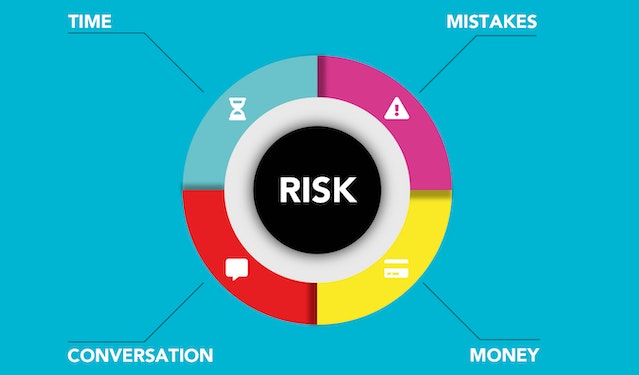

Your capital should work for you. It’s a common rule for those who want an additional income. Of course, you can just save some, but this won’t allow you to earn a considerable sum quickly. Therefore, you should consider investments. Before you start, create a plan that will help you determine where, how much, and for how long you should invest your funds.
By skipping this step, you risk making the wrong decisions, which will lead to losses. After all, you don’t want to be among 90% of first-time investors who fail to increase or regain their investments.
Let’s discover what the best investment plan is.
1. Set goals
To earn additional income, you need to have a goal. A precise purpose will determine how long you should invest and what type of investment will allow you to reach it. Do you want to invest because you have a strict wishlist and want to cross out point by point every position? That would be a great motivation.
2. Assess how much you can invest
Before you start investing, you should understand how much you can spend. The sum should be affordable, so you don’t suffer. There are many rules to help you decide how much to invest. The most acceptable one is 30-30-40. It means that you can spend 30% of your income on general needs. You should spend another 30% on debts. If you don’t have any debts, divide this sum, putting 15% toward daily spending and 15% toward investments.
Then, an additional 40% of your total income should go to investments. When determining a sum for investing, you should remember emergency issues. Therefore, spend as much as 40%, so you still feel comfortable.
3. Define how much time you have
You should determine how fast you want to reach a particular goal. This will help you choose what kind of investment plan you need. For instance, the best investment plan for monthly income may include bank deposits with a specific interest rate. The income will depend on the bank rate and the amount you put into your account.
You can consider trading as a kind of investment approach. If you are an active trader, you will have an opportunity to get additional income every month.
You may have shorter-term goals. For instance, let’s say you want to buy a car within a year. Then, you need to develop the best investment plan for 1 year. As it’s a short-term plan, you should consider risky instruments because they can bring you high income, as well as high losses, so you need to trade carefully. Numerous funds can allow you to get additional income within one year. For instance, you can use money market, arbitrage, or low-duration funds.

4. Determine how much risk you can handle

The idea of investing is to bring comfort to your life. If you constantly worry that you can’t afford something because you have invested everything in risky assets, and they are crashing, it’s a way to nowhere. It’s better to diversify and balance risky assets that can bring an income faster with less volatile ones, which are suitable for long-term perspectives. Decide for yourself how much you should risk.
5. Choose instruments for investing
All previous steps led us to the final step of the investment plan — selecting an instrument. You can choose from numerous options on the market to get additional income. Bank deposits, funds, and trading were already mentioned. Other options include bonds, cryptocurrencies, stocks, Forex, etc.
For instance, if you are developing the best investment plan with high returns, bonds are not a suitable option. They are for people who have lots of time for returns and don’t want to risk their funds. If you want to have an opportunity to receive returns fast, you should choose instruments with a high level of volatility, including cryptocurrencies and stocks.
Riskier instruments bring higher returns but go hand in hand with significant risks.
Build your portfolio
The way you build your portfolio will depend mostly on what your financial goals are. You also need to take a good look at your investing tolerance and your investing time frame. If your goals include earnings in the short term, then you may want to build your portfolio with low-risk investments. This can include savings accounts, government bonds, term deposits, and more.
If you are in it for the long term, then you should build your portfolio with high-return investments. This can include property or shares, which increase in value over time. The risks are indeed higher, but if you are in it for the long term, you should be able to exclude potential short-term losses.
Monitor your investments
When you are creating an investment plan, it is important to always keep track of your investments. When you start investing, you are probably doing so with a plan in mind. You need to make sure that your strategy is on track and that the investment risks are working for you.
Very often, you will see spikes in your investment. There is bound to be at least one moment when they will not perform right. It’s important that you keep your cool and that you don’t sell the moment things take a turn for the bad.
In the worst-case scenario, if the investment is not working well, you may consider tweaking your strategy. Look for potential warning signs and their source. Based on available data, you may decide on the best course of action.
Up next in how to invest
When creating an investment plan, it is important to follow every step with care. Do as much research as possible to lower your investment risks. Read up next on how to invest so that you only make the best investment decisions.
Takeaway
It’s a common mistake of newbie investors to forget to monitor and rebalance investments. Even if you make a perfect investment plan, the markets aren’t static. Therefore, you must stay up to date and reconsider your investments depending on market conditions. Moreover, you will likely want to review your assets—add more or withdraw some. Be active and adapt to the constantly changing world.







